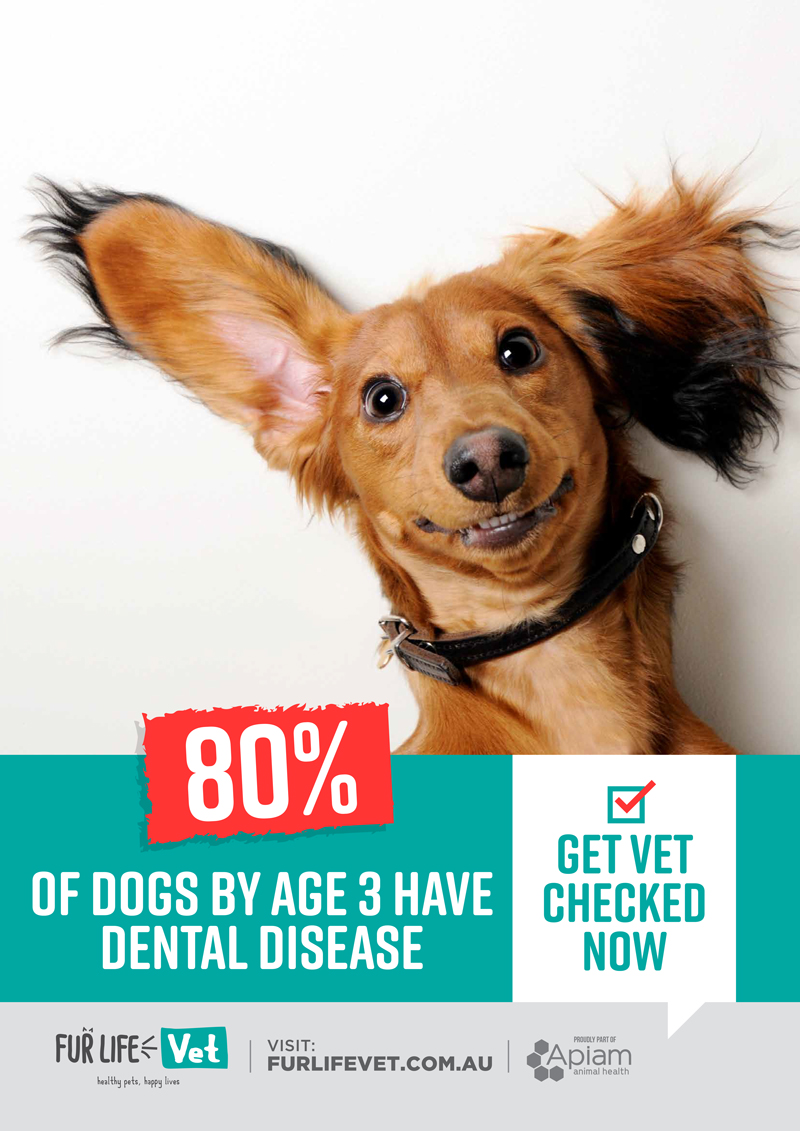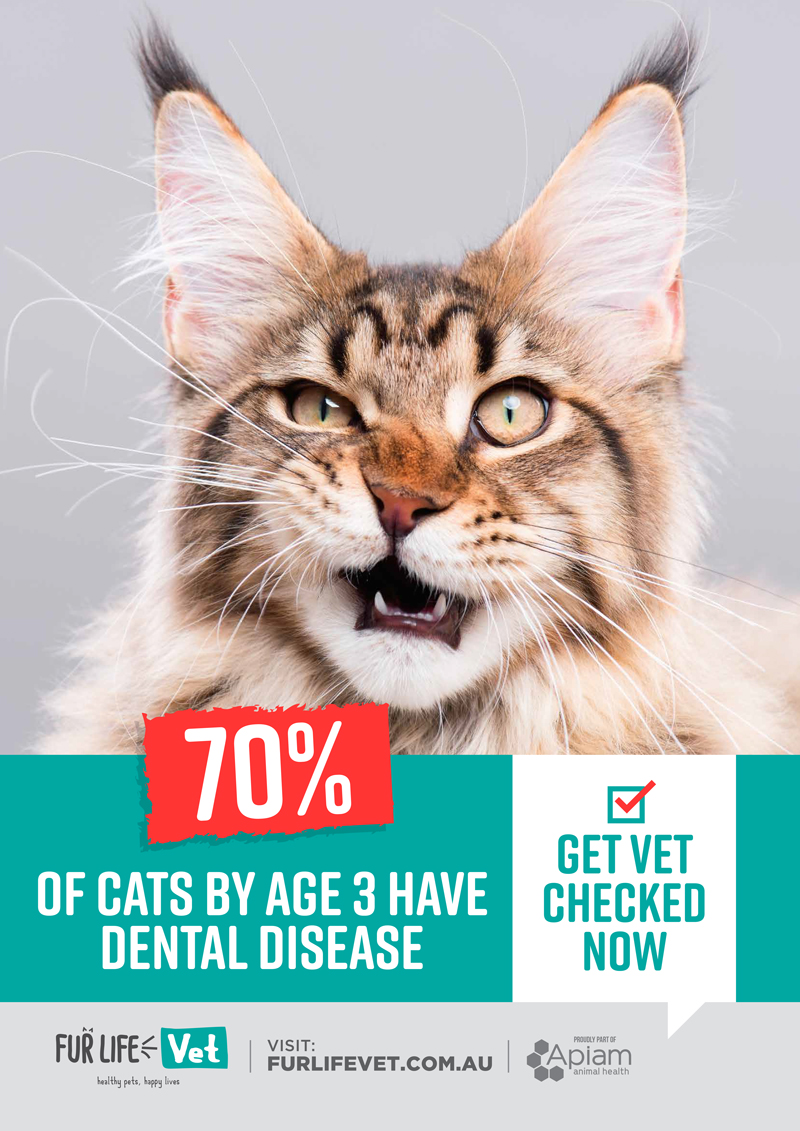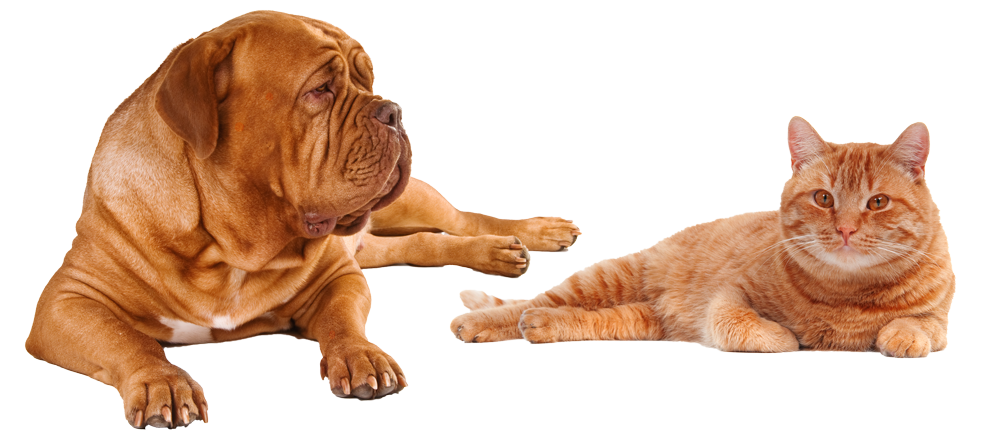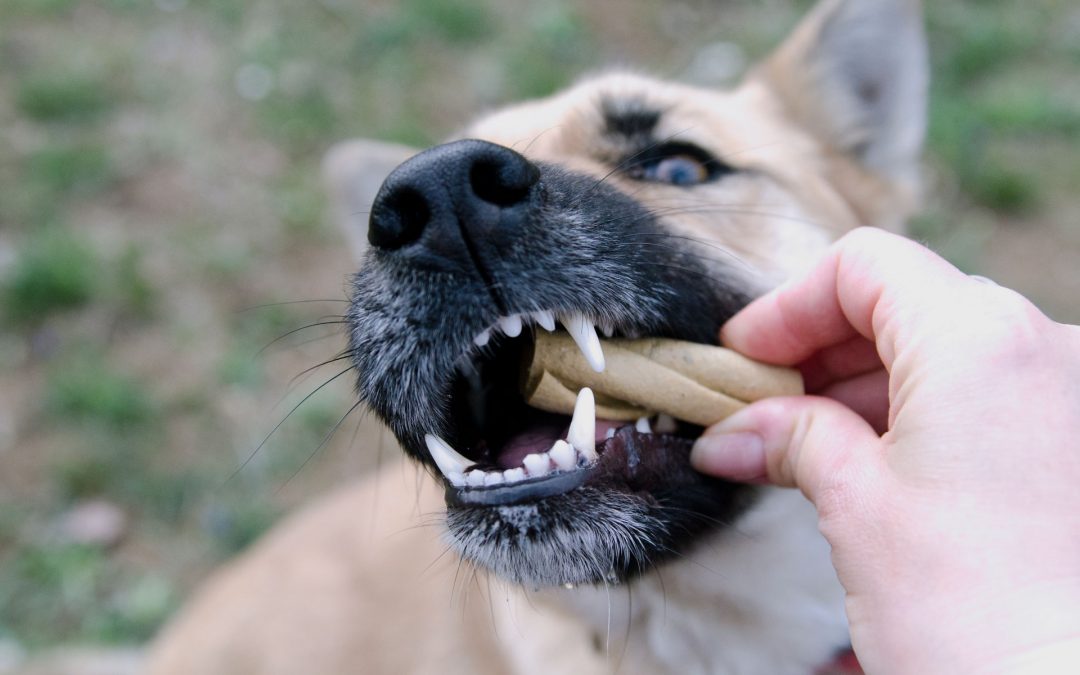

What is dental disease?
Dental disease is caused by the accumulation of plaque. Plaque is the thin, sticky film that covers teeth and is composed of bacteria and their by-products, saliva, food particles and sloughed epithelial cells. If plaque remains it begins to become mineralized from elements such as calcium and magnesium from within the saliva. Mineralised plaque is called calculus. Calculus provides a nice breeding ground for destructive bacteria. Plaque irritates the gums at the tooth-gum interface, and the bacteria it contains proliferate in the groove around each tooth. The bacteria and their by-products cause further inflammation and eventual destruction of the periodontal ligament which anchors the tooth in the socket. Eventually the tooth falls out but not before the surrounding bone is destroyed. When dental disease is just at the gum inflammation stage it is termed gingivitis. As the periodontal ligament is destroyed the disease is termed periodontitis.
IMPORTANT!
You can reverse the effects of gingivitis with a professional prophylaxis and/or homecare techniques however periodontitis is irreversible. Dental disease not only causes bad breath, infections can extend into roots and surrounding bone causing significant pain and discomfort. It can also extend further into the blood stream causing diseases in other parts of the body in your pet.
- Dogs over the age of 3 with dental disease 80%
- Cats over the age of 3 with Dental disease 70%
Signs of dental disease
There are various signs you can look out for in your pet, these are:
- Bad Breath (halitosis)
- Discoloured or loose teeth
- Excessive drooling, sometimes blood stained
- Dropping of food from the mouth when eating, or reluctant to chew or eat at all, especially hard food.
- Pain when handled around the head or behavioural changes (e.g. lethargy, increased aggression, disrupted sleeping patterns)
- Facial swelling
- Pawing at the mouth
- Inflamed (gingivitis) or receding gums
Preventing dental disease
Appropriate Food Premium prescription pet-foods with larger, harder kibble that are completely balanced are available for both dogs and cats at your furlife vet. These foods contain enzymes and ingredients similar to those found in our toothpaste that help to slow the dental disease process and help prevent plaque from forming on the teeth. Pet Dental chews Dental chew products, such as Oravet have been shown to work in two different ways: by decreasing overall bacterial loads in your pets mouth and softening plaque on the tooth surface. Brushing your Peet’s teeth Brushing is the ‘gold standard’ method of keeping your pets teeth clean. We brush our teeth multiple times a day – your pets teeth need to be brushed daily too.
There are many different methods to keep your pet’s “pearly whites” white! For adult cats and dogs with existing dental disease, a dental treatment with a scale and polish under general anaesthetic is often necessary to get their mouth back into top condition. It may also be necessary to remove teeth that are fractured or loose and in certain cases may be followed by treatment with antibiotics to prevent infection, or irritated gums.
In the majority of pet’s lives, there comes a time when their teeth may require veterinary treatment over and above their regular examinations. A dental treatment involves:
- Full veterinary pre-operative health assessment.
- Admission and discharge appointments.
- General anaesthetic including intravenous fluids.
- Professional scaling to remove tartar.
- Charting of the mouth to look for tooth decay, pain and mouth cancers.
- Polishing of the teeth so they shine.
- Advice on home-care to keep that smile sparkling.




Recent Comments